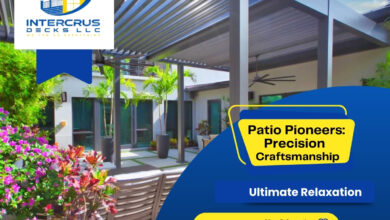Efficient, Cost-effective, and Eco-friendly Home Solutions
Ensuring a More Efficient, Cost-Effective, and Environmentally Friendly Home
In today’s rapidly evolving world, the importance of creating a home that is not only efficient and cost-effective with home solutions but also environmentally friendly cannot be overstated. As homeowners, our choices significantly impact not just our wallets but also the planet. Fortunately, numerous innovative solutions and practices can help transform our homes into sustainable havens. This article delves deep into actionable strategies that pave the way for an efficient, cost-effective, and environmentally conscious lifestyle.
1. Energy-Efficient Appliances
The first step towards a greener home begins with replacing outdated appliances with energy-efficient alternatives. Modern appliances, such as Energy Star-rated refrigerators, washing machines, and air conditioners, consume significantly less energy while delivering optimal performance. Over time, this transition not only reduces your electricity bills but also minimizes your home’s carbon footprint.
2. Smart Thermostats and Lighting
Embrace the power of technology by integrating smart thermostats and lighting systems into your home. These innovative devices allow you to control your home’s temperature and lighting remotely, ensuring that energy is not wasted when it’s not needed. For instance, programmable thermostats adjust the temperature based on your schedule, optimizing energy consumption and reducing costs.
3. Proper Insulation and Sealing
A well-insulated home acts as a barrier against external temperature fluctuations, reducing the need for heating and cooling systems to work overtime. Invest in quality insulation materials for walls, ceilings, and floors. Additionally, seal any gaps or cracks around windows, doors, and ductwork to prevent air leaks. By maintaining a consistent indoor temperature, you can significantly lower your energy bills and enhance overall comfort.
4. Water Conservation Practices
Water is a precious resource, and adopting conservation practices can lead to substantial savings while preserving the environment. Install low-flow faucets, showerheads, and toilets to reduce water wastage. Regularly check for leaks and repair them promptly. Additionally, consider harvesting rainwater for outdoor use and landscaping purposes. These simple yet effective measures contribute to a sustainable water management system within your home.
5. Natural and Sustainable Materials
When renovating or building your home, prioritize the use of natural and sustainable materials. Materials such as bamboo, reclaimed wood, and recycled glass not only minimize environmental impact but also enhance indoor air quality. Additionally, opt for eco-friendly paints, finishes, and furnishings that are free from harmful chemicals and toxins. By choosing sustainable materials, you create a healthier living environment for you and your family while promoting responsible consumption.
6. Waste Reduction and Recycling
Implementing a robust waste reduction and recycling system is crucial for maintaining an environmentally friendly home. Start by reducing single-use plastics and opting for reusable alternatives. Set up designated recycling bins for paper, glass, metal, and organic waste. Composting kitchen scraps and yard trimmings further reduces landfill waste and provides nutrient-rich soil for gardening. By adopting a zero-waste mindset, you contribute to a circular economy and minimize your ecological footprint.
7. Renewable Energy Sources
Harnessing renewable energy sources such as solar panels, wind turbines, and geothermal systems can significantly offset your home’s energy consumption. Conduct a thorough energy audit to determine the most viable renewable energy solutions based on your location and home structure. While the initial investment may seem substantial, the long-term benefits in terms of energy savings and environmental stewardship are undeniable.
8. Educate and Advocate
Last but not least, educate yourself and others about the importance of sustainability and environmental stewardship. Stay informed about emerging technologies, policies, and practices that promote energy efficiency and conservation. Share your knowledge and experiences with friends, family, and community members to inspire collective action. By advocating for sustainable living, you contribute to a greener future for generations to come.
Conclusion
Creating an efficient, cost-effective, and environmentally friendly home is not an overnight endeavor but a continuous journey. By implementing these actionable strategies and embracing a sustainable mindset, you can transform your living space into a model of environmental stewardship. Remember, every small step counts, and together, we can build a more sustainable future for ourselves and the planet.
Author Bio:
Joshua Rodriguez is a tech-savvy writer specializing in e-commerce trends and business strategies for hotels to amplify revenue. With his 10+ years of expertise, he delivers insightful content to empower businesses in the digital marketplace. Outside work, he enjoys nature, photography, and immersive reading, maintaining a balanced life.


